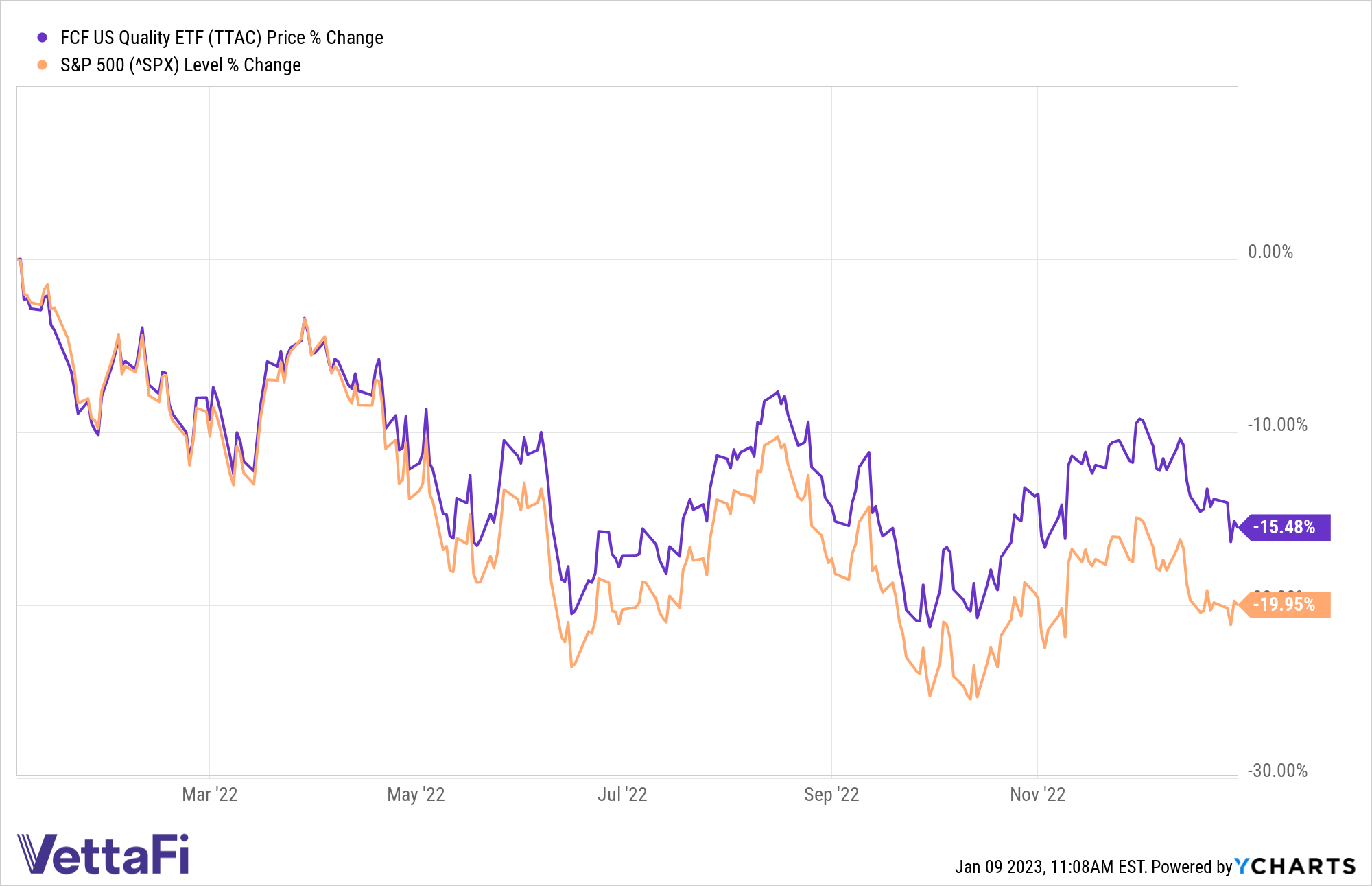Free cash flow is the cash generated by a company through its operations after accounting for capital expenditure on fixed assets. FCF Advisors has been focused on free cash flow investment strategies since 2011 and specializes in multi-factor fundamental analysis grounded in decades of research. Its flagship exchange traded fund, the FCF US Quality ETF (TTAC), identifies companies with strong and sustainable profitability that provide core equity exposure with lower downside capture.
TTAC aims to outperform the Russell 3000 through a fundamentals-driven investment process that selects an average of 144 stocks based on free cash flow strength. Its holdings are then weighted by a modified market-cap log transformation, allowing increased exposure to companies with the strongest proprietary free cash flow rankings.
All the companies selected for inclusion in the actively managed ETF were chosen via FCF Advisors’ Free Cash Flow Quality Model (FCFQM), a multi-factor model featuring a combination of quality measures informed by the firm’s research. FCFQM relies on free cash flow rather than earnings.
Bob Shea, CIO of FCF Advisors, told VettaFi that his firm believes that “GAAP earnings have significant disadvantages,” and “accounting practices allow a lot of leeway and discretion to management.” Meanwhile, “the ability to manipulate and distort free cash flow is a lot more difficult than with earnings.”
FCF’s position is that free cash flow is less vulnerable to management manipulation than GAAP earnings and has been a better predictor of medium- to long-term outperformance. In addition to such big names as Apple and Google, TTAC also has holdings in such companies as American auto parts retailers O’Reilly Automotive Inc. (ORLY) and AutoZone Inc. (AZO), credit scoring services data analytics company Fair Isaac Corp. (FICO), and pharmaceuticals and medical supplies distributor McKesson Corp. (MCK).
TTAC has outperformed the S&P 500 by 447 basis points for the calendar year 2022.

TTAC’s portfolio will also be rated with an ESG score, excluding companies with low ESG ratings. Firms with an extreme rise in shares count and increase in leverage are excluded.
For more news, information, and analysis, visit the Free Cash Flow Channel.

